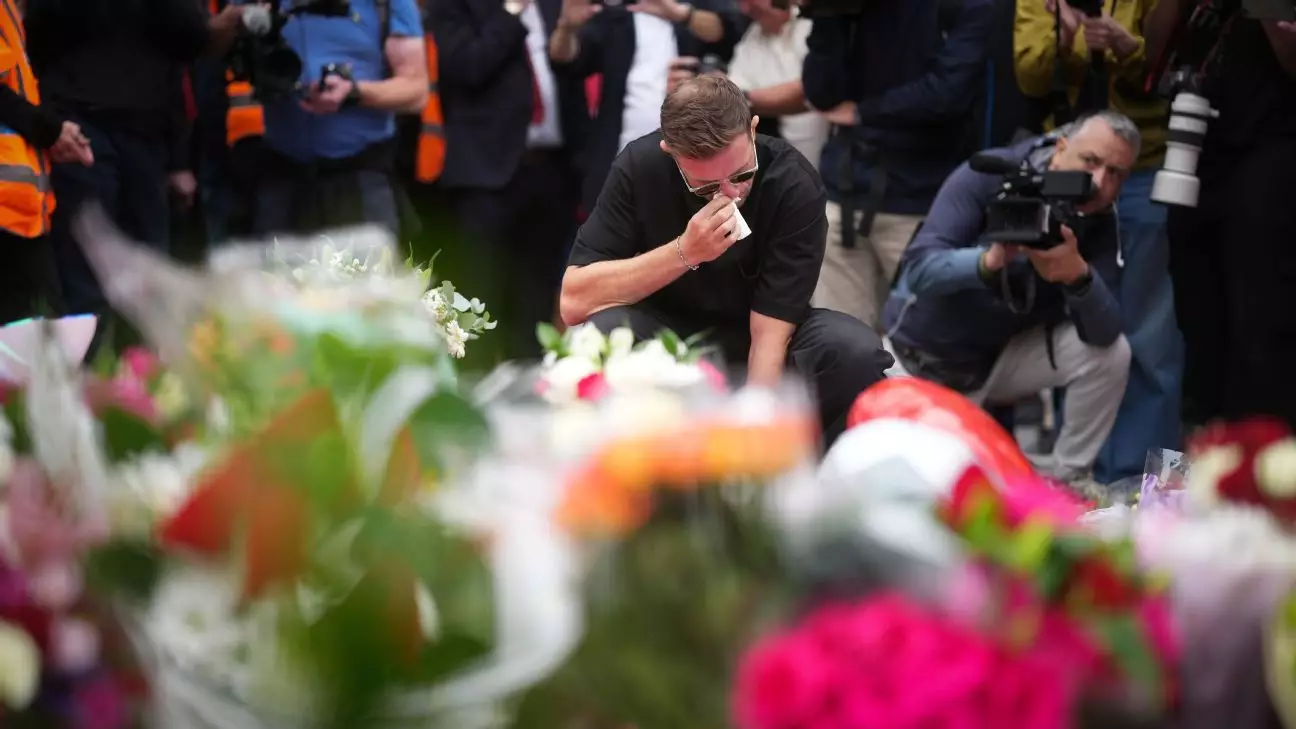In an instant, the vibrant tapestry of a promising athlete’s life was ripped apart by a tragic crash, leaving a void that echoes deeply within the football community and beyond. Diogo Jota, a player celebrated for his relentless spirit and undeniable talent, died at the young age of 28, taking with him not just potential and achievements, but also the hopes of a loving family. The weight of this loss challenges us to confront the fragility of life, especially for those who seem invincible on the pitch but are just as vulnerable in the chaos outside it.
The outpouring of grief from teammates such as Jordan Henderson, Virgil van Dijk, Mohamed Salah, and Trent Alexander-Arnold reveals a broader truth: that human connection transcends sporting excellence. Jota’s precious moments with family—particularly his recent marriage and his children—highlight the importance of cherishing those closest to us amidst a world obsessed with performance and success. His sudden absence sparks a painful reminder that no matter how skilled or admired an athlete is, life’s unpredictable turns demand empathy and reflection.
A Community United in Mourning, Yet Questioning the Cruelty of Fate
Liverpool’s collective mourning underscores how tight-knit the football fraternity truly is, despite competition and rivalry. The emotional tributes—tears outside Anfield, heartfelt messages on social media—demonstrate a shared sense of loss that rattles even the most stoic among us. It’s easy to get caught up in the celebration of victories, but moments like this expose the underlying vulnerability beneath the veneer of triumph.
However, this tragedy also invites criticism of the superficiality that often shadows professional sports. Behind the glamour and fame lies human fragility, yet players and clubs tend to focus on resilience and mental toughness rather than facing and processing genuine emotional pain. The suddenness of Jota’s death prompts reflection on whether the football world invests enough in players’ well-being, both mental and physical, outside the stadium. Perhaps it is time for a broader conversation about how sports institutions can provide real support systems for their athletes—not just during crises but throughout their careers.
Flickering Hope in a Darkness of Uncertainty
While the grief is universally palpable, what is equally vital is recognizing the need for societal change. Road safety, mental health, and the importance of community support are issues that extend far beyond the football pitch but are underscored by this tragic event. We often mask our vulnerability behind the veneer of success, but incidents like Jota’s crash remind us that sectors of society—especially those in high-performance environments—must prioritize the holistic well-being of their members.
The collective response from Liverpool’s hierarchy and star players indicates that compassion and solidarity are essential antidotes to grief. Yet, this tragedy also challenges us to question whether we are doing enough as a society to prevent such needless losses. Are we investing sufficiently in safer roads, mental health awareness, and community outreach? Or are we simply comforted by the fleeting illusion that such tragedies happen “somewhere else,” rather than acknowledging their pertinence in our immediate sphere?
A Testament to Humanity’s Finest Qualities
In the wake of this heartbreak, the stories and tributes serve as a powerful reminder of what it truly means to be human. Football, often criticized for its commercialism and spectacle, also reveals moments of genuine humanity—moments that remind us of our interconnectedness. Jota’s character, as described by friends and colleagues, was marked by kindness, humor, and unwavering love for his family. These qualities elevate him beyond the footballer; he embodies the potential for greatness rooted in empathy and community.
It is perhaps within this tragedy that we find a call to action: to foster environments—both on and off the pitch—that nurture human dignity, foster mental resilience, and cultivate compassion. While we mourn Jota’s passing, we should also honor his legacy by advocating for systemic changes that respect and protect the vulnerable, reminding ourselves that in the end, it is our shared humanity that endures far beyond the fleeting realm of sports and fame.


Leave a Reply